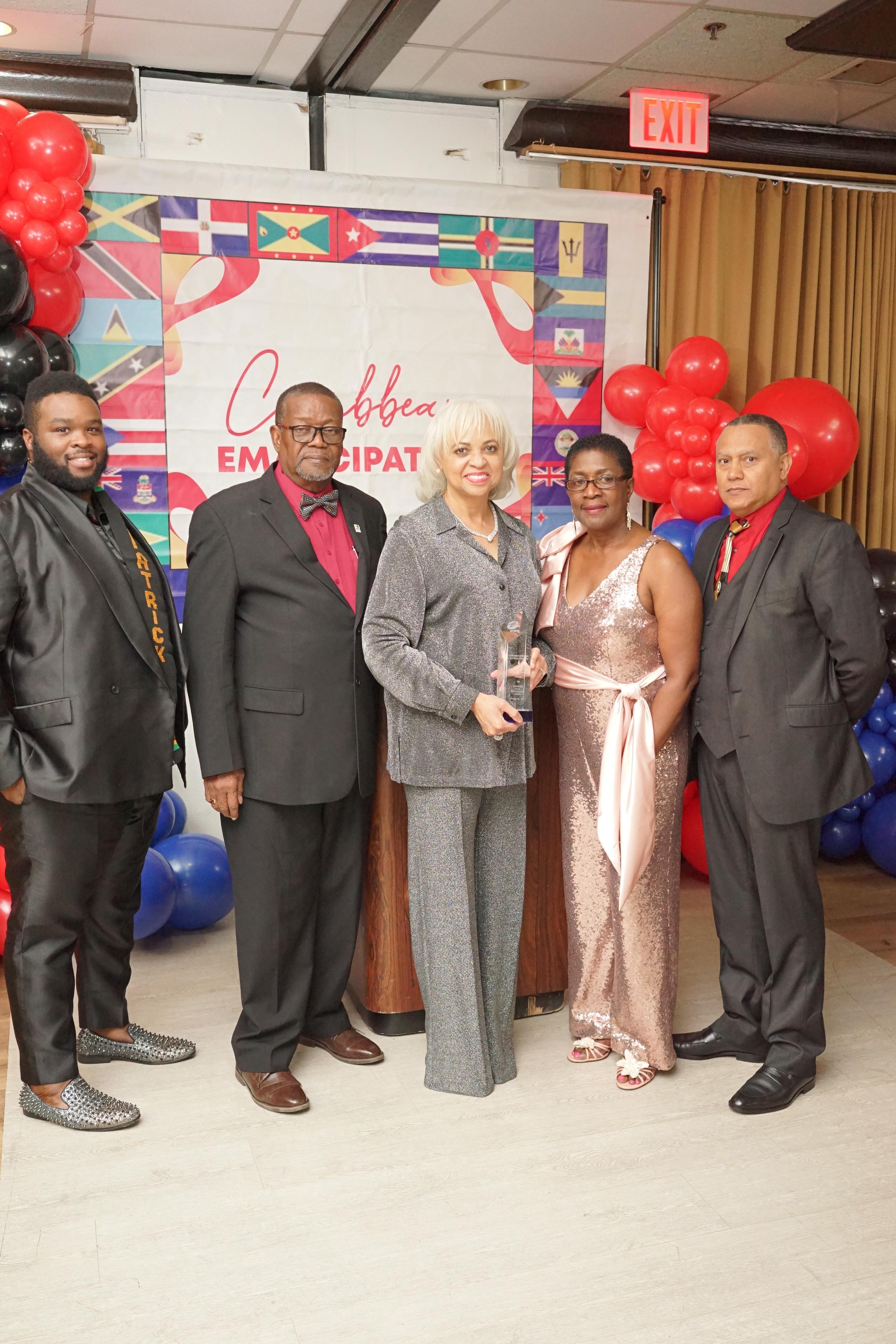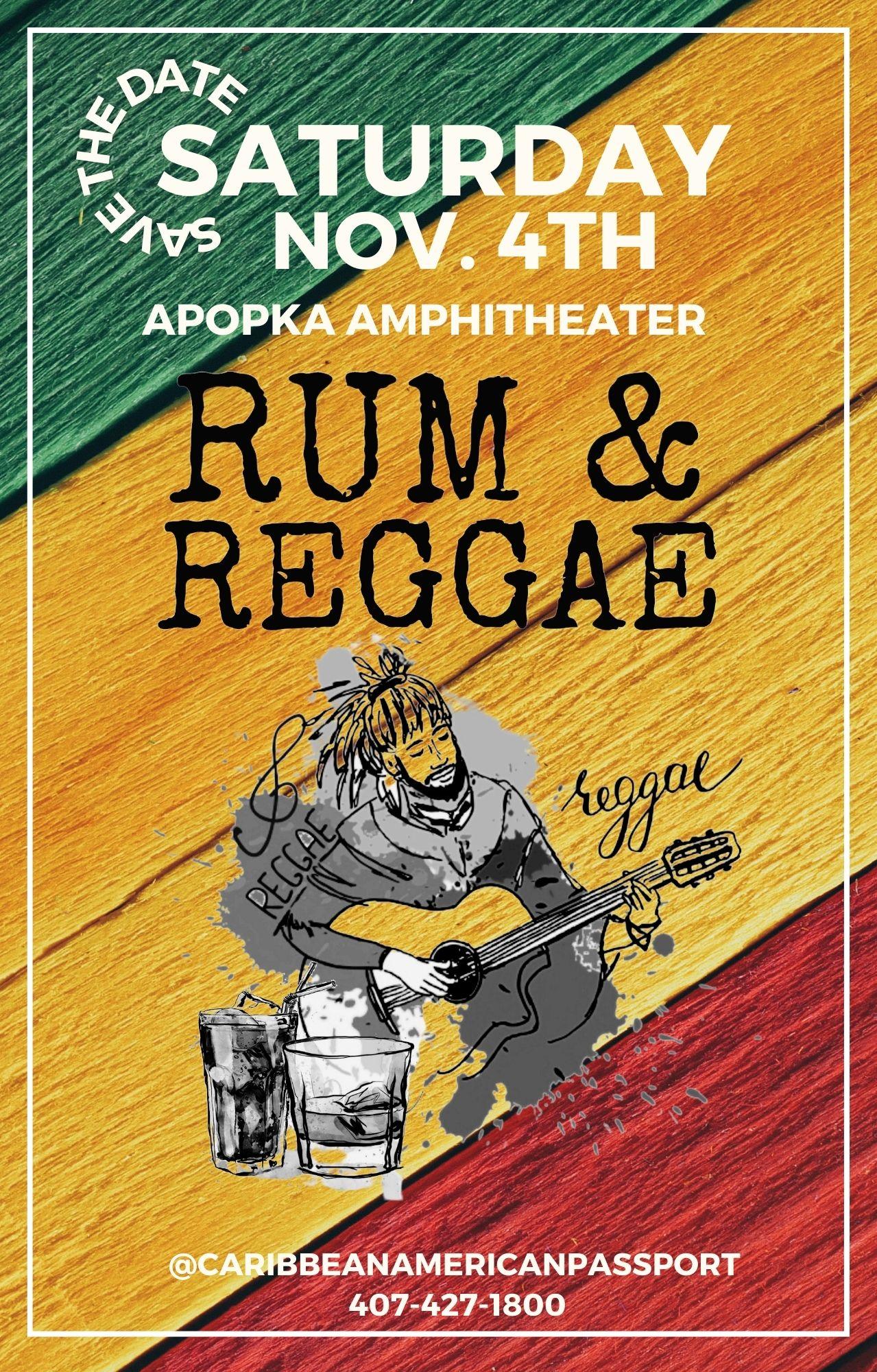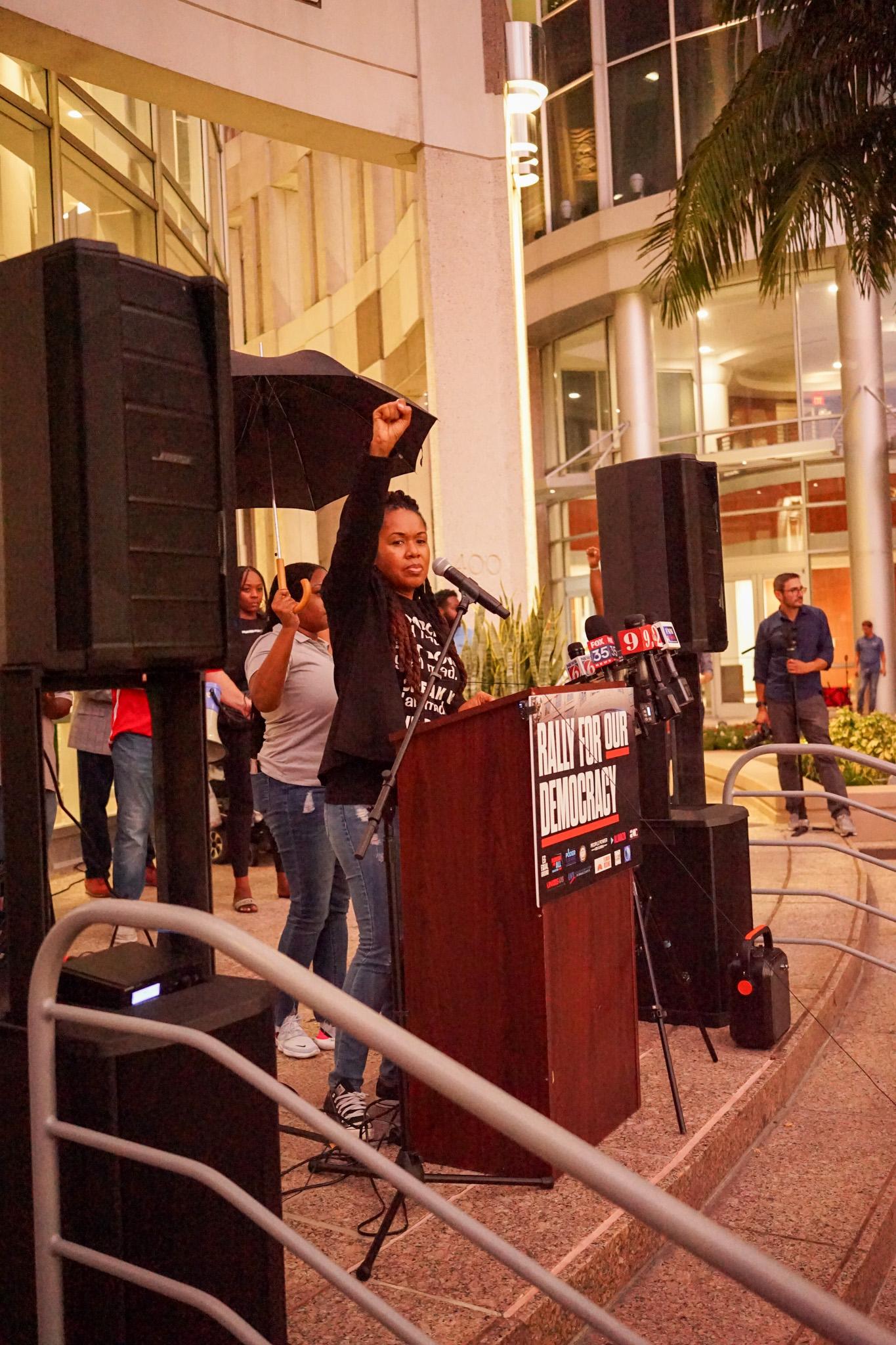Echoes of a Dream:
Thousands Unite to Mark the 60th Anniversary of the Historic March on Washington

Thousands Unite to Mark the 60th Anniversary of the Historic March on Washington

As the golden rays of morning washed over the Lincoln Memorial, a historic site that has witnessed numerous pivotal moments in American history, tens of thousands congregated to commemorate the 60th anniversary of the iconic March on Washington for Jobs and Freedom. It was here, six decades ago, that the civil rights champion, Martin Luther King Jr., articulated his dream for a nation free from the chains of prejudice and inequality. His "I Have a Dream" speech delivered on August 28, 1963, has since solidified as a bastion of hope and a symbol of the ceaseless endeavor forracialandsocialequity.
Yet, as the reverberations of King's dream continued to echo through time, the assembly on this Saturday came with a resounding declaration that the aspirations woven into that dream were at risk, facing setbacks amidst a resurgence of hatred and bigotry that threatens to undermine the strides made in the quest for justice andequality.

Rev.AlSharpton,aformidablecivil
On 4 July 1973, the Caribbean Community (CARICOM) was established to deepen regional integration.


This year, the Region will celebrate 50 yearssincethesigningoftheTreatyof Chaguaramas and the accomplishments of CARICOM, which is revered as the oldest surviving integration movement in thedevelopingworld.
The milestone will be celebrated with several events under the slogan, “50 Years Strong: A Solid Foundation to Build On”. Last year, the Secretariat launched a Region-wide competition urging CARICOM Nationals to submit a logo design for the 50th Anniversary Celebration with a cash prizetobewon.

Hon. Philip Davis, Prime Minister of the Bahamas and CARICOM Chair said the upcoming anniversary, which closelycoincideswithhisisland’sown 50th Independence Day, was an opportunity for the Caribbean to “build on and strengthen the foundationsofthepast50years”.
In his New Year statement, the Prime Minister emphasised, “for our Community,thismilestonecomesata time when regional cooperation has never been more urgent and necessary. The shock of and response to the COVID-19 pandemic was a stark illustration of the limitations of workingalone”.

During a visit to the CARICOM Secretariat in January, Dr the Honourable Ralph Gonsalves, Prime Minister of Saint Vincent and the Grenadines said that the 50th Anniversary should be a period of renewal and celebration of the gains madewithRegionalIntegration.
During her address at the Fiftieth MeetingoftheCommunityCouncilof Ministers of CARICOM, Dr Carla Barnett, Secretary-General, CARICOM, stated that “this is a year to renew our commitment to the Community and enrich this unique legacyforthosewhowillfollowus”.

Guenet Gittens-Roberts
Owner/Publisher/Editor
In the fast-paced world of today, change is the only constant. This is especially true in the media landscape, where publications must evolve to meet the shifting expectations and demands of their audience.
Caribbean American Passport News Magazine (CAP) is doing precisely that – and they're not just keeping up with thetimes,butpioneeringthewayforward.


For 13 years, CAP has served as the bridge between two worlds: the rich and diverse Caribbean culture and theexpansive American diaspora. Through its pages, stories of resilience, triumph, culture, and heritage have reached homes, fostering a deep connection within the community. But as times change, so do methods of storytelling. And it'snot just about where the audience is, but how they'reconsumingcontent.
Print media has its charm and will always hold a special place in our hearts. But today's world demands more. With the rapid growth of digital platforms, people are increasinglyconsumingcontenton-the-go,andCAPDigital istheanswerto that. A natural progression from print to a vibrant digitalpresence, this new venture promises to take the tales of the Caribbean American diaspora to new heights.
We are excited about how CAP has leveraged its partnerships to ensure a wide reach. Joining hands with the Kalalloo Alliance Media Network and the Caribbean Americas Single Economy (CASE) initiative is a masterstroke. This partnership ensures that the voice of the Caribbean American community will now echo in corners of the world it had never reached before. Kallaloo Network is based in the Virgin Islands and wecan
Moreover, the launch of Orlando's first Caribbean FM radio station, thanks to the collaboration with the Cultural Vibrations Radio Show, is another commendable step in the direction of inclusive media representation. Radio, a medium that's intimate and personal, can capture the essence of stories and transport listeners to another world. With the Caribbean American diaspora's tales filling the airwaves, we anticipate an even more profound connection among thecommunity.
TheCaribbeanAmericandiaspora,withitsvibranthistories and experiences, is a complex mosaic of tales woven with heritage, resilience, celebration, and integration. Recognizing the expansive nature of these stories, CAP Digital is venturing further into innovative storytelling, underlining the immense potential of collaboration. Instead of restricting itself to a single partnership, CAP Digital isembracing multiple platforms live events and storytelling vehicles, ensuring a diverse andricherrepresentationofthediaspora'snarratives.
Reflect on the age-old traditions of storytelling. It dates back to times when tales were recounted orally, around communal gatherings, with every listener deeply engrossed in stories of valor, folklore, and collective memories. Thepower of these tales wasn't merely in their narrative but in the shared experience they cultivated. In today's digital age, CAP Digital is rekindling that sense of shared experiences, by collaborating with a variety of storytelling platforms. CAP Digital is creating a space where narratives are not just told but lived. These platforms,eachwiththeiruniquestyleand approach, allow for a broad spectrum of stories, from the deeply personal to the widely celebratory. Through these collaborations, audiences will be to live an array of experiences, giving them a panoramic view of the Caribbean American diaspora'srichness.
1969 Alafaya Trail • Orlando, FL 32828 Office: 407-427-1800 Fax: 407-386-7925
Toll Free: 877-220-8315
For Media Information email: Publisher: sroberts@caribbeanamericanpassport.com Info: .Info@caribbeanamericanpassport.com
Should you desire to review past copies of the publication go to http:// caribbeanamericanpassport.com and click on the 'Print Archive'.
Publisher&Editor...................................................................................Sam Roberts
Publisher ............................................................................. Guenet Gittens-Roberts
Editor&ContributingWriter ....Aleia Roberts
Contributing Writers: Tony Dyal
Contributing Photographers King Visual
Dillia Castillo
Central Florida Distribution......................................................... .Danielle Browne
South Florida Distribution.............................................................Norman Williams

NorthFlorida Distribution Kadeem Roberts
Tampa Distribution...................................................................................Julian Pina
www.caribbeanamericanpassport.com
Editor's Note: This commentary is provided by the Medical Marijuana Education and
Consider this hypothetical scenario: Two weeks ago, during a vacation in California, you lawfully purchased and consumed marijuana intended for adult use. But now you are back at work in Florida, where recreational cannabis remains illegal, and you have been chosen for a randomdrugtestbyyouremployer.
It is highly likely that your past marijuana usage, although legal at the time, would be detected by urine and hair follicle tests. A urine analysis can find traces of tetrahydrocannabinol (THC), the psychoactive component in cannabis, for up to 30 days following marijuana consumption, while a hair follicle sample offers up to 90 days of potentially incriminatingevidence.
If your employer has a strict drug-free workplace policy, you could be fired regardless of the circumstances. The same consequence could happen even if you had legally used low-THC medical cannabis because employees with Florida medical marijuana cards are not protected by statelaw.
 Research Initiative (MMERI) of Florida A&M University
Research Initiative (MMERI) of Florida A&M University
A particularly daring method used to cheat a urine testinvolvesobtainingaurinesamplefromanon-user.
According to drug testing expert Zathan Boutan, employees whose job roles pose safety risks, such as those working in law enforcement and transportation, are often subject to random drug testing as a condition of employment, unlike employees indesk-boundpositions.
“Oral fluid is one of the newer methodologies, and it goes back a day, possibly two if you're a heavy user,” says Kelly Dobbins, who has 25 years of experience in administering drug and alcohol tests for public andprivate employers,courtsandthefederal government.
“Oral fluid is one of the newer methodologies, and it goes back a day, possibly two if you're a heavy user,” says Kelly Dobbins, who has 25 years of experience in administering drug and alcohol tests for public andprivate employers,courtsandthefederal government.

Join us once again for a day infused with the rhythms of reggae and the spirit of the Caribbean at the 2nd Annual Rum and Reggae Festival! Presented by the Caribbean American Passport News Magazine, this celebration of culture, music, and flavor will take place at the Apopka AmphitheaterinApopka,FL,onSaturday,November4th.
After the resounding success of our inaugural event, which was moved to November due to weather concerns and subsequently found its rightful place as a much-anticipated November Caribbean fixture, this year promises even more excitement.Althoughartistannouncementsarestillpending, if last year is any indication, attendees can expect an incrediblelineupofreggaeactsandlivebands.
Last year, we celebrated the 30th anniversary of the Caribbean Sunshine Bakery with electrifying performances by reggae legends such as Freddie McGregor, Ras Shiloh, Lt. Stitchie,andmanyothers.TheCaribbeanSunshineBakery,a family-ownedestablishmentsince1992,wasalsohonoredfor its continuous commitment to the Caribbean Diaspora in Orlando, expanding from one location to three and consistently delivering quality products with premium ingredients.
This year's Rum and Reggae Festival will again be the go-to destinationtoimmerseyourselfintheCaribbean’sillustrious rum heritage, mouth-watering food, and vibrant culture. Attendees are encouraged to come early, starting at 2 pm, to experience everything the festival has to offer. Engage with various vendors, savor samples in the Rum Zone, snap photosattheOrlandoCarnivalphotozone,engageinagame of dominoes, or simply savor the tantalizing food offerings withreggaevibessettingtheambiance.Themainconcertwill kick off at 6 pm, delivering back-to-back reggae acts live on stageuntil10pm.
Delight in authentic Caribbean dishes – from jerk chicken, corn soup, and rice & peas to curry goat and chicken curry, theflavorsareboundtotransportyoustraighttotheislands.
For families, it’s an outing not to be missed! Children under 10 enjoy free admission. So, lay out on the lawns of the Apopka Amphitheater, indulge in rum tasting sessions, and letthemusiccarryyouaway.
rights activist andthe leader of the National Action Network, one of the organizing groups of the rally, addressed the massive crowd, emphasizing the sobering reality of the present moment. "Sixty years ago, Martin Luther King talked about a dream. Sixty years later, we're the dreamers," he asserted, urging the gathering to carry forth the torch of activism ignited by King and the many leaders who stoodwithhim.
As the day unfolded, the National Mall resonated with voices that echoed the sentiments of unity, solidarity, and the unyielding resolve to secure a future where equality is not merely a dream, but a tangible reality. The rally transformed into a living testament of the enduring spirit of the civil rights movement, a poignant reminder that the fight is far from over, and that the dreamers of today bear the mantle of safeguardingthe gains achieved over the past sixtyyears. The event served as a platform for reflection on the setbacks that have marred the nation's path towards equality, drawing attention to the existing fractures that threaten to deepen the chasms of division. It became a call to action, urging Americans to awaken to the stark realities that cloud the nation's journey towards a more inclusive andequalsociety.
In the sea of faces that gathered at the Lincoln Memorial, there was a visible representation of the broad spectrum of America — a diverse collective united by a shared vision of a nation that celebrates its diversity while working tirelesslytomenditsdisparities.
As the crowd dispersed under the evening sky, there lingered a palpable sense of determination and hope. The speeches, echoing the timeless words of King, served as a rallying cry for a new generation of activists poised to take upthemantleofleadershipintheongoingpursuitofjustice andequality.
In commemorating the 60th anniversary of the March on Washington,thegatheringreflectednotjustaremembrance of a pivotal moment in history, but an energized commitment to realize the dream articulated by King on thathistoricday.


The Center for Multicultural Wellness and Prevention (CMWP) has been at the forefront in advocating for healthier lifestyles in the community. As we notice a promising decline in the pandemic's infection rates, CMWP is gearing up to host the 20th Annual Caribbean Health Summit, a vital event fostering health and community spirit. The event promises to be a day filled withbeneficialhealthscreeningsandentertainingactivities suitableforallagegroups.
Working hand in hand with notable organizations like the Caribbean American Chamber of Commerce of Florida, the Florida Department of Health in Orange County, Advent Health, and Florida Hospital, the CMWP is ready to make this year's summit a significant milestone. The theme chosen for this year, "Mental Health is Wealth too," underscores the importance of mental well-being, encouraging the community to embrace a holistic approachtohealth.
Free health screenings will be a vital part of the event, allowing individuals to keep track of various health parameters including blood pressure, cholesterol levels, and body mass index, among others. Additionally, attendees can benefit from specialized screenings like prostate-specific antigen tests, Alzheimer's evaluations, HIV/STD tests, dental check-ups, and eye exams. Mental wellness resources will also be available, encouraging individualstoprioritizetheirmentalhealth.
Since its beginning in 2002, the summit has drawn people from various cities including Miami, Winter Haven, and DaytonaBeach,creatingadiverseandvibrantgatheringin Orlando. It offers an enjoyable day out for families, with fun-filledactivitiesplannedforbothchildrenandadults.
Celebrating its 28th year, the non-profit CMWP continues tobeabeaconofhealtheducationandoutreachinCentral Florida, particularly focusing on the minority communities. Their commitment to enhancing the quality of life for the locals is evident in their longstanding community service and collaborations with various agencies.
For more information about the upcoming Caribbean Health Summit or to learn more about CMWP's initiatives, feel free to reach out at (407)648-9440 or visit theirwebsiteatwww.cmwp.org.

InthebustlingstreetsofKingston,Jamaica,duringthelate 1960s and early 1970s, a cultural phenomenon was unfolding that would later play an instrumental role in the birth of hip-hop in the Bronx, New York. The connection betweenthesetwodistinctlocalesmightseemunlikely,but thesonicinfluenceofJamaicansoundsystemsandDJswas undeniableinshapingthedirectionofmodernmusic.
The Jamaican "DJ call-out" method, or "toasting" as it's known,involvedlocalDJstalkingorchantingliveoverthe instrumental riddims (rhythms) and dub versions of popular reggae tracks. This gave the tracks a personal touch, making each performance unique. DJs like U-Roy and Big Youth popularized this style, turning the DJ into aninteractiveshowmanratherthanjustarecordspinner.
In the early 1970s, Clive Campbell, better known as DJ Kool Herc, moved from Kingston to the Bronx. He recognized the crowd's love for the instrumental breaks in funk and soul records and started using two turntables to extend these breaks, a method reminiscent of the dub versionspopularinJamaica.
During these extended breaks, much like the Jamaican DJs,
he began calling out to the crowd and giving shoutouts,essentiallylayingthegroundworkforwhatwouldbecome rap.
The enthusiastic response Herc received from these "breakbeat" parties was the spark that ignited the hip-hop movement. As it gained traction, other pioneers like Grandmaster Flash refined the art, with MCs (short for Master ofCeremonies)soontakingcenterstage,rappingoverbeats.
By 2017, hip-hop's meteoric rise saw it surpass pop and rock to become the dominant music genre in the US and Canada. The young artists of today, whether they're producing beats in Florida or strumming guitars to cover pop sensations, owe a nod to hip-hop's roots. And those roots, inextricably, are intertwined with the vibrant soundscapes of Jamaican music culture.
It is a testament to the power of cultural exchange that a sound system culture from the streets of Kingston could play such a pivotal role in the evolution of a global music phenomenon. Today, as rap stars fill arenas worldwide, the echoes of Jamaican toasting still reverberate, a reminder of hip-hop'srichanddiverseheritage
Are you looking to access the vibrant, diverse, and influential Caribbean diaspora that exists in Florida?
Look no further than Caribbean American Passport News Magazine!


In a grand celebration recently held in Trinidad and Tobago, the Caribbean Community (CARICOM) marked a milestone that speaks volumes about its role in shaping the socio-political landscape of the region and beyond. The golden jubilee anniversary, a magnificent 50 years of unity, leadership, and progressive advocacy, was hailed as"a force for good" by Commonwealth Secretary-General Baroness Patricia Scotland.
During a special tribute session at the 45th Heads of Government Conference in Port-of-Spain, from July 3rd to 5th, Baroness Scotland conveyed the Commonwealth's admiration for CARICOM's resolute journey over the past five decades. She emphasized how CARICOM has steadfastly stood as a pillar of moral courage, solidarity, and a fierce advocate for what is right in the international arena.


In her tribute, Baroness Scotland brought attention to the remarkable contributions of the first Secretary-General of the Commonwealth from the Caribbean, Sir Shridath Ramphal.
Ramphal, with his relentless efforts, positioned the Commonwealth on the favorable side of history, catalyzing actions that ultimately dismantled minority rule in Rhodesia and quashed the oppressive apartheid regime in South Africa. His vision transcended beyond these crucial issues, leading him to advocate fervently for sustainable development and draw attention to the alarming dangers of rising sea levels and the looming threats posed by climate change.
Fast forward to the present, Baroness Scotland highlighted the resilient partnership forged between CARICOM and the Commonwealth. Together, they are navigating the turbulent waters of climate crises, forged from broken promises on environmental preservation. In this collaborative journey, significant recognition was given to the former President of Guyana, Bharrat Jagdeo, for his outstanding contribution to climate financing. Jagdeo spearheaded a Commonwealth
expert group that successfully initiated the establishment of a climate finance access hub. This initiative, kickstarted in 2015 with a modest investment of US$6 million, has since flourished remarkably. Baroness Scotland noted its success in unlocking over US$276 billion in climate financing across 19 member states, including a substantial allocation of US$52 million directed towards Caribbean member countries. The initiative has further propelled the commencement of projects valued at around US$500million.
In her closing remarks, the Commonwealth Secretary-General reaffirmed the pivotal role of CARICOM in fostering global good. "Even though thechallengesaregreat,together we are more than equal to them," she asserted, instilling a sense of unity and camaraderie among the CARICOMHeadsgathered.


The Greater Caribbean American Cultural Coalition Inc, the Greater Caribbean American Chamber of Commerce, and Harvest Hope of Africa USA Inc, in association with the Caribbean Consular Corps, successfully hosted a night that echoed with the rhythms of heritage, freedom, and culturalrichness-TheCaribbeanEmancipationGala.
Theevent,celebratedatChateauMarGolfResort,becamea vibrant canvas portraying the splendor of Caribbean culture. Over the course of the evening, guests were enveloped in an atmosphere that resonated with unity, camaraderie,andthejoyousspiritofemancipation.
Marked as more than just a celebration, the gala became a significant space where history, identity, and freedom interconnected seamlessly. It reiterated the importance of emancipation celebrations, serving as a beacon that illuminates the resilience and liberating legacy of the Caribbeancommunity.


This event was held under the distinguished Patronage of Ramzan Roshanali, Honorary Consul General of Guyana, and Oliver Mair, Consul General of Jamaica. The Consul General of Guyana was represented by his lovely wife and daughter. A highlight of the evening was Commissioner This was a continued feature throughout the night - the honoring of the ties that weave the Caribbean community
The highlight of the evening was the stirring addressby Guest Speaker, Samantha Rammarine. Her empowering words resonated deeply with the audience, stirring a collective spirit of unity and camaraderie. The speech became a catalyst,



OnalivelySundayinQueens,NYC,theenergyofTrinidad and Tobago's Carnival filled the streets. The occasion marked the co-naming ceremony of "Trinidad and Tobago Street," the first of its kind outside the twin islands. This gesture reflects the Trinbagonians' significant cultural impact in NYC, especially within the diverse borough of Queens.
ThehistoricstreetnamingsymbolizesabondbetweenNew York and Trinidad and Tobago, ensuring the twin islands' legacy remains alive in NYC. Tourism Trinidad expressed pride in this achievement, emphasizing unity and the collective efforts of individuals and organizations. They commended the diaspora for consistently representing theirheritagewithpride.


The ceremony was a vibrant celebration of Trinidad and Tobago'sessence.Attendeesenjoyedtraditionaldances, mouthwatering dishes like doubles and roti, and the immersive sounds of soca music. Raymond Ramnarine of thefamedbandDil-E-Nadancapturedtheevent'sspiritwith photos,ensuringtheday'ssignificanceremainseternal.
For the Trinbagonian diaspora, this street represents more than just a name; it stands as a testament to their roots, journey, and resilient spirit. As the event concluded, the spiritofcelebrationpersisted,making"TrinidadandTobago Street"inQueensasymbolofanation'senduringessence.



The tango between elected officials and those in appointed positions can often raise questions about democratic principles, accountability, and the delicate balance of power. The case of Governor Ron DeSantis' decision to remove elected State Attorney Monique Worrell and appoint Judge Andrew Bain in Florida brings these issues into sharp focus.
Governor Ron DeSantis has been a prominent figure in Florida's political landscape, often making headlines for his decisions that resonate strongly with his political base. State Attorney Monique Worrell, as an elected official, held her position based on the mandate of the people, making her removal a contentious matter.
Elected vs. Appointed: A Refresher
Elected Officials: Directly chosen by the public, these figures are answerable to their constituents. Their legitimacy stems from the votes they receive.
Appointed Positions: Chosen by elected officials or governing bodies, these figures may have specialized expertise for specific roles. Their primary accountability is to those who appointed them.
Governor DeSantis' decision to remove an elected official like Monique Worrell challenges the principles of democratic representation. Supporters argue that a governor, as the state's top elected executive, should have the power to ensure that all officials align with his vision for the state. Critics, on the other hand, assert that removing an elected official subverts the will of the people who voted her into office. The subsequent appointment of Andrew Bain further complicates matters. Appointing a judge to fill the role of a State Attorney shifts the
balance from an official chosen directly by the people to one chosen by another elected official. While Judge Bain might bring legal expertise and a fresh perspective to the role, questions arise about the circumvention of the democratic process.
For DeSantis, the appointment can be seen as a strategic move to ensure that the State Attorney's office aligns more closely with his vision and policies. For his critics, it's a potential encroachment on the independence of the legal system.
This situation raises significant questions about the balance of power:
Democratic Representation: Does the removal of an elected official, especially in a legal role, threaten democratic representation?
Accountability: Who should appointed officials like Judge Bain be most accountable to: the appointing authority (in this case, DeSantis) or the public?
Governance: How can governors ensure harmony within their administration without overstepping their bounds?
The unfolding drama between Governor Ron DeSantis, State Attorney Monique Worrell, and Judge Andrew Bain serves as a stark reminder of the nuanced interplay between elected officials and appointed positions. While the outcome of this situation remains to be seen, it highlights the ongoing debate about the best ways to uphold democratic principles while ensuring effective governance. Regardless of where one stands on the issue, it underscores the importance of vigilance, public discourse, and checks and balances in a functioning democracy.
JetBlue's recent initiative to enhance connectivity within the Caribbean diaspora through affordable and convenient flight options marks a significant step forward in strengthening ties between the Caribbean and the United States. JetBlue is set to launch operations to two Caribbean destinations: St. Kitts and Nevis,andBelizeCity,Belize.
Connecting the Caribbean and the United States: Operating from the bustling John F. Kennedy International Airport (JFK) in New York, JetBlue's entry into 27 countries withintheCaribbeanregionisagame-changer.
By providing affordable and convenient flight options, JetBlue isbridgingthegapandfosteringincreasedinteractionbetween theCaribbeandiasporaandtheirhomecountries.
Discovering Untouched Beauty: St. Kitts and Nevis: Starting November 2, JetBlue will offer three flights per week to the idyllic islands of St. Kitts and Nevis. Whether it's exploring the UNESCO World Heritage Site of Brimstone Hill Fortress, indulging in the vibrant local cuisine, or engaging with the warm and friendly locals, St. Kitts and Nevis offer a trulyimmersiveexperience.
Cultural Enrichment: Belize City, Belize:
JetBlue's introduction of flights to Philip S. W. Goldson International Airport in Belize City further strengthens the cultural exchange between the Caribbean and the United States. Belize is a melting pot of diverse cultures, including Mayan, Garifuna, Mestizo, and Creole. With its stunning natural wonders like the Belize Barrier Reef, ancient Mayan ruins such as Xunantunich, and vibrant festivals like Garifuna Settlement Day, Belize City offers travelers a unique opportunity to immerse themselves in the rich tapestry of Caribbeanculture.
JetBlue's expansion into the Caribbean not only connects people but also plays a crucial role in boosting tourism and economicgrowthintheregion.
By providing affordable travel options, JetBlue encourages morevisitorstoexploretheCaribbean'shiddentreasures.This, in turn, supports local businesses, creates job opportunities, andpromotessustainabledevelopment
Caribbean American Passport News Magazine (CAP) is launchingitsnewdigitalside,CAPDigital.Itwillteamup withthetraditionalpaperversion,socialmedia,andother partnerstobringexcitingvideoandaudiostories.
CAP, showcasing Caribbean culture with a touch of American flavor, has been a top magazine in Florida for the Caribbean community since 2010. It both celebrates the community's rich culture and serves as a platform for adsandmarketing.

Withthemovetodigital,CAPwillbeeverywhere,hosting global live events. The new content will be shared across many platforms, reaching a broader audience. One of the big partners in this is Kalalloo Alliance Media Network, which is a part of the bigger Caribbean Americas Single Economyinitiative.
Kalalloo shares a variety of content globally, from TV and radio to digital publications, and reaches audiences in the Caribbean, South America, USA, Europe, and Asia. You canlearnmoreontheirwebsitehttps://ourtv.network.
This change isn't just about being online; it's a big step in sharing content and connecting with more people. The voice of the Caribbean American community will be louderandreachfurther.
For generations, the heartbeat of the Caribbean American diaspora has pulsed with vibrant tales of heritage, resilience,celebration,andintegration.Ourstories,shared around gatherings and passed down through generations, have always been our strength. Now, it's time to amplify ourvoicelikeneverbefore!
With CAP Digital, we are venturing into innovative storytelling methods, expanding our horizons beyond print. From captivating social media videos and audios to radioandvideoproduction,weaimtoimmerseourglobal audienceinoursharedexperiences.
We believe that every story, whether of joy, struggle, or triumph, deserves to be heard. That's why we're partneringwithmultiplestorytellingplatforms,ensuringa diverse and richer representation of our community's narratives. It's not just about telling our tales, it's about livingthem,together,inthisdigitalage.
For more info or to learn about CAP Digital, please get in touchwiththeCAPteam.

When I saw an article in the Trinidad Guardian ‘Port-ofSpain plagued with problems’, I immediately felt that the plagues, like so many other health problems in Trinidad and Tobago (T&T), did not go to the hospital but most likely came from it. My friend Tom, who told me that vagrants were sleeping in the entry to areas where people with serious injuries were being admitted, blamed the doctors.
Even though it sounded far-fetched, he was adamant, “All of the doctors have their own private hospitals or make plenty money from them, and this is why in the public hospital there is always a long wait for medical attention and surgeries, no beds available, and plenty hard talk from the doctors and nurses.” I had learnt the hard way that “hospital” and “hospitality” are two vastly different things in T&T and never the twain shall meet, except at the bank. Worse, if you’re paying to be looked after in one of the doctor-owned facilities, you will find that even if you go to one because your bowels are locked tight, they still charge you for toilet paper. That is why I call them Ho$$pitals’.
I know what these same big-shots can do to poor people who show up in the ‘government’ facilities. There are some who charge a lot of money when you go to their offices and then arrange for you to be accepted in the hospitals so they can use the facilities for free. My unforgettable experience was when riding my motorbike at high speed, it refused to respond or slow down and instead was heading into a concrete wall. I tried stepping off backward while the bike was going forward, but my slippers tripped me, and I broke my left collarbone. I was kept waiting on a trolley in the hospital for hours. What made it worse was that several of my school friends had become doctors, and each of them stopped, looked at me and then said things like, “A blasted old man like you riding motor-bike? You look for what you get!” and “You ain’t change. You still up to stupidness. If you want to dead, jump through the window. We on the twelfth floor.” I got my own back with one of them, though. He was the one whose job was to put me to sleep before surgery. He looked at me with a long hypodermic needle in his hand and said, “Just a little prick.” My reply was, “I know. I know. You haven’t changed since school days.”
In my days of working for the Pan American Health Organisation (PAHO), I visited every hospital in the region. While the standards in Jamaica can vary in both the public and private facilities, it is 65 in the world for the effectiveness of its healthcare system. T&T is at 88. Barbados, where my two younger children were born, has an amazing healthcare system. It has nine polyclinics, a public hospital, and a variety of speciality surgeries including an HIV clinic. The polyclinics specialise in providing primary care for every Barbadian, free of cost.
This is why when the Trinidad Guardian newspaper in November 30, 2002, headlined, “Casualty back in operation with a skeleton staff”, I thought it was a brilliant idea. Skeletons are ideal for such an operation. First of all, security would be boned up rather than beefed up.
Normal human beings, as well as the people who frequent hospital casualty departments, would not be able
By Tony Deyalto breach the hospital’s defence or gain entry unlawfully since only the people in charge would have skeleton keys. Those of us who complained about all the corruption, misspending, stealing of supplies, and the covering up of malpractice and negligence would no longer have to worry. One sure outcome of employing a skeleton staff is transparency. Make no bones about it. Askeleton staff guaranteestransparency.
Skeletons might be numbskulls or boneheads, but they are too smart to steal food from the cafeteria or towels from the laundry. Even though you cannot really pin anything on them, they still do not steal body parts to sell to private institutions since they know they will be easily discovered. Additionally, by using a skeleton staff, the problem of the overcrowdedmortuarywillbeended.Afterall,skeletonsare people with their outsides off and insides out. While skeletonshavesomedifficultyinstandingupforthemselves, by the same token, they do not bow to pressure or knuckle underdespots,doctors,ordictators.Althoughafewofthem might be lazy bones, most of them work hard. On the down side, they can be messy. One of them went to the cafeteria and ordered a cup of coffee and a mop. Another refused to work at the hospital because its heart wasn’t in it. One refused to attend the welcome party put on by the Ministry of Health because it had no body to dance with. And when one reached late for work and tried to lie, explaining that it was chased by a dog, its supervisor said, “Don’t try that. I canseerightthroughyou.”
On the plus side, skeletons are easy and cheap to maintain. Unlike the present hospital staff, they require no meals or meal allowance. In fact, they don’t use the cafeteria food becausetheyhavenostomachforit.Ittheytakeanythingat all it is soup with plenty of body and served in one-bone china. They never lose their cool or get angry the way the T&Thospitalstaff,especiallythenursesanddoctors,do.No shouting and shooting us down by the skeletons. In fact, nothing gets under their skins. They are very studious and always boning up for exams. Even the few who might be tempted to get angry and make outrageous demands eventuallybackdown.Theydon’thavethegutstofight.
On Sundays, the skeleton force stays on the job instead of going to church because they have no organs. Instead of usingthegovernmentservicetosendoutalltheirChristmas cards and run up major expenses, which the Government must pay, they send their mail by bony express. They don’t require any transportation allowance since like vampires, they travel by blood vessels. They don’t take coffee breaks –they take coffin breaks, and after 21 years, they still do so. That is why, as far as I am concerned, the use of skeleton staff at the Academy and Emergency Department of Trinidad and Tobago, and any other country in the Caribbean except Barbados, would considerably reduce the present excessive demand on the limited resources of the hospitals.Eventhoughchildreninhospitalswouldbescared stiff,andadultsmightgetghoulstonesorcoffinfits,doctors would be in paradise since they would have more time for their private practice and their own money machines. In addition, the Ministry of Health will have more money to spend on the really important medical issues such as attendingfar-awayinternationalconferences.
Tony Deyal was last seen wondering why skeletons are so calm. He then realised that it is because nothing gets under their skins.

